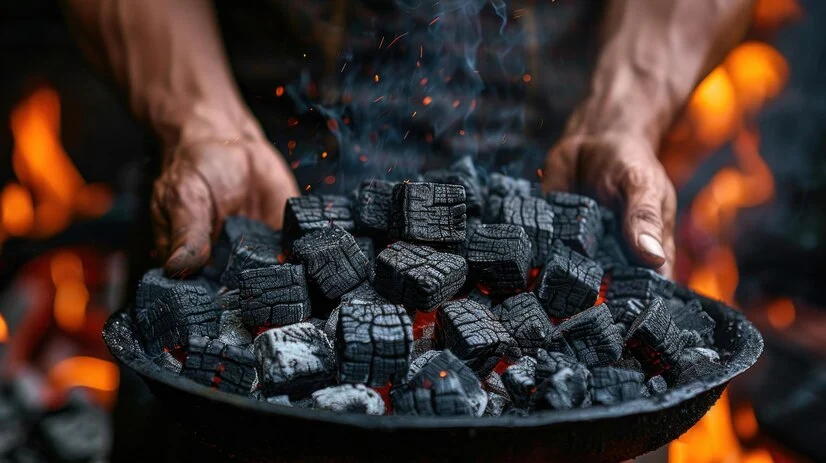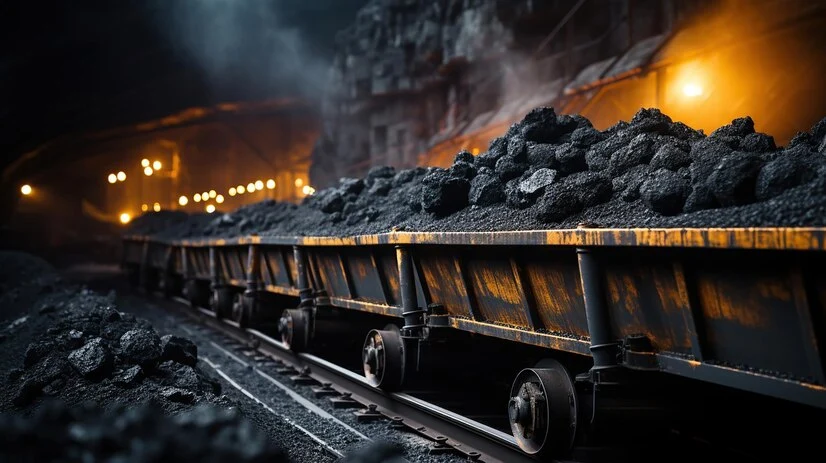Coal for sale near me is easy to find if you search online or visit local stores. Many companies offer different types of coal at affordable prices. You can compare prices and choose the best option that suits your needs.
Coal is used for heating homes and powering machines, and it’s available in small or large quantities. Whether you need a little for your fireplace or a lot for your business, you can find it nearby. Always check the quality and size of the coal before making a purchase to ensure it meets your requirements.
Understanding the Different Types of Coal
Coal is a natural resource that comes in different types. The main types of coal are anthracite, bituminous, sub-bituminous, and lignite. Each type of coal has unique qualities and uses, making it important for various purposes.
Anthracite is the hardest type of coal. It burns cleanly and produces a lot of heat. People use anthracite for heating homes and generating electricity.
Bituminous coal is the most common type. It is softer than anthracite but still produces a lot of heat. Bituminous coal is often used in power plants to make electricity and in making steel.
Sub-bituminous coal is lower in carbon than bituminous coal. It has a lower energy content but is still useful. Sub-bituminous coal is mainly used for electricity generation.
Lignite is the softest type of coal. It is brown and has a high moisture content. Lignite is primarily used in power plants to generate electricity.
Finding Coal for Sale Near You
If you are looking for coal for sale, there are many places to check. Online marketplaces like OLX and Craigslist are good options. These websites often have listings for coal sellers near you.
Local suppliers and dealers are also great places to find coal. You can visit their stores or contact them by phone. Buying from local sellers helps support your community while finding what you need.
To get the best deals, check different listings and compare prices. It is important to verify the seller’s credibility before buying. Look for reviews and ask questions to ensure you are making a safe purchase.
Buying Coal in Bulk vs. Small Quantities
Buying coal in bulk can be a smart choice for many people. It often costs less per kilogram than buying small amounts. When you buy more, you save money in the long run.
When comparing prices, consider how much coal you really need. Buying 1 kilogram of coal may be more expensive per unit. If you use coal often, purchasing in bulk can save you money and reduce trips to the store.
However, storing bulk coal needs careful planning. You should keep it in a dry, safe place to prevent damage. Make sure you have enough space before deciding to buy coal in larger amounts.
Price Factors and What to Expect
Coal prices can change based on several factors. The quality and type of coal, as well as demand and location, all affect prices. Understanding these factors can help you know what to expect when buying coal.
Average prices for different types of coal can vary. For example, anthracite coal is usually more expensive than lignite coal. You might find that the price of 1 kilogram of coal can be different depending on the type you choose.
Coal prices can also change with the seasons. In winter, demand for coal usually rises, leading to higher prices. During warmer months, prices may drop due to lower demand, so it’s good to check regularly.
Environmental and Safety Considerations
Coal mining and usage have some environmental concerns that we should think about. Mining coal can damage land and water resources, which affects local wildlife. Burning coal can also release harmful gases into the air, contributing to pollution and climate change.

When handling and storing coal, safety is very important. Always wear gloves and a mask to protect yourself from dust. Keep coal in a dry, well-ventilated area to avoid fire hazards and ensure safe use.
There are cleaner energy options available as alternatives to coal. Solar and wind energy are renewable sources that do not harm the environment. Using these alternatives can help reduce our reliance on coal and protect our planet for the future.
Bottom Lines
Different types of coal, where to find coal for sale, and how to buy it. It discussed the advantages of buying in bulk, the factors that affect coal prices, and safety tips for handling coal. Additionally, it highlighted cleaner energy alternatives that can reduce reliance on coal.
Now that you have important information about coal, it’s time to start your search. Look for local suppliers or online listings to find the best deals. Make informed decisions to ensure you get the right coal for your needs while keeping safety and the environment in mind.
Frequently Asked Questions (FAQs)
Q1. How much can coal be sold for?
Coal can be sold for different prices depending on its type and where you buy it. Prices can range from $50 to $200 per ton. The cost also depends on how much you buy and its quality.
Q2. What does coal sell for?
Coal is sold based on its type, quality, and location. On average, it costs between $50 and $200 per ton. The price can change if the coal is for heating or industrial use.
Q3. How much is coal per short ton?
The price of coal per short ton is usually between $50 to $200. It depends on the type and quality of coal. Prices can vary based on where you live and the coal’s usage.
Q4. What is the price of 1 ton coal in Pakistan?
In Pakistan, the price of 1 ton of coal is around 30,000 to 50,000 Pakistani Rupees. This can change depending on the type and quality of coal. Prices might also vary in different regions of the country.
Q5. Which coal is cheaper?
Lignite coal is usually the cheapest type of coal. It is lower in energy and quality compared to other types. Bituminous coal, which is used more for heating, costs more than lignite.
Q6. What is coal used for?
Coal is used for heating homes, generating electricity, and powering factories. Some people also use coal for cooking in certain parts of the world. It helps make energy that powers homes and industries.








